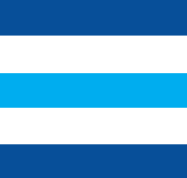COBRA coverage is not free. Plans can charge up to 102 percent of the “applicable premium” for coverage during the COBRA period. This price increases to 150 percent during a disability extension of COBRA. Group health plans may terminate COBRA coverage when premiums are not paid on time.
COBRA allows grace periods and then applies health coverage retroactively. Consider a former employee who waits until the last day of the grace period to see if he incurs any claims before paying for coverage.
It should be no surprise that the majority of COBRA administration disputes involve premium payments. This article provides a review of some basic premium payment rules so you may administer your plan correctly and be prepared to handle the inevitable premium payment dispute.
Allowable Premium Payment Schedules
A group health plan must allow COBRA premium payments to be made in monthly installments. Thus, a plan cannot require a qualified beneficiary to pay for more than one month at a time. That said, a plan is not prevented from accepting weekly, quarterly, semi-annual or other payments so long as the plan provides the qualified beneficiary the option to pay monthly.
Premium Payment Deadlines
- Initial COBRA Premium. The very first COBRA premium payment is due within 45 days after the qualified beneficiary elects COBRA. This is a hard deadline. There is no grace period following the 45 day deadline. For example, suppose a qualified beneficiary terminates employment on March 15, 2016. His group health coverage ends March 31, 2016 and COBRA would start April 1, 2016. He elects COBRA on April 30, 2016. The first COBRA premium would be due on June 14, 2016 – 45 days after he elected COBRA. The first premium would cover the period from April 1 through May 31.
What happens if a qualified beneficiary pays only part of the initial premium payment? Consider the example above but assume that the qualified beneficiary paid only half of the initial premium by the 45 day deadline. Can the plan treat the qualified beneficiary as having no COBRA coverage for failure to pay? Of course, the regulations are not clear. But, because of the COBRA requirement to allow qualified beneficiaries to pay on a monthly basis, the conservative approach is to provide COBRA coverage for the month of April and then terminate for nonpayment.
- Subsequent Premium Payments. Following the initial payment, COBRA premium payments “shall be considered timely if made within 30 days after the date due or within such longer period as applies to or under the plan.” Plan documents and COBRA notices should clearly distinguish between the due date and the grace period end date. At least one court has found that a COBRA election notice that says premiums are due by the end of the coverage month created a due date of the end of the month plus a 30 day grace period rather than a due date of the beginning of the month with a grace period to the end of the month as was intended. Clear language is key!
Payment Receipt Guidelines
The COBRA regulations utilize what is commonly referred to as the “mailbox rule.” The mailbox rule says that evidence of timely mailing creates a presumption of timely receipt. In other words, under the COBRA regulations, payment of a COBRA premium is considered made on the date that it is sent to the plan.
Employer and Third Party Administrator Coordination
Many employers hire a third party administrator to handle COBRA premium collection. Is a COBRA premium considered late if, despite written notice, the qualified beneficiary mails payment to the employer rather than to the COBRA administrator?
The COBRA regulations state that, “Payment is considered made on the date on which it is sent to the plan.” An employer that hires a COBRA administrator still serves as the plan sponsor and plan administrator. The COBRA regulation requiring payment to the “plan” and the fiduciary requirement that the plan sponsor act in the best interest of participants and beneficiaries, strongly implies that the payment is timely and the employer should properly coordinate with the COBRA administrator to alert the administrator that payment has been received and coverage should remain in force.
Notice of Termination
A plan administrator may terminate COBRA at the end of the grace period if the premium payment is not made. If the late payment is the initial COBRA premium, there is no requirement to send a notice of termination because the COBRA coverage was never in effect.
If a qualified beneficiary elects COBRA, makes the initial payment on a timely basis but then fails to make a subsequent monthly installment within the grace period, a notice of termination must be sent. In fact, the plan administrator must send a notice explaining that COBRA has terminated and the reason for the termination any time that COBRA terminates before the end of the maximum COBRA period.



